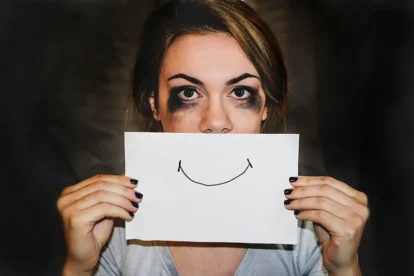Benzodiazepine Dependence Management: Why Residential Treatment is Vital for Success

Becoming dependent on benzodiazepines can be scary, as attempting to decrease your dose can be painful and shatter your hopes for recovery. But by understanding the roots of benzodiazepine dependence and finding the right help, you can deconstruct your anxieties about addiction treatment while undergoing a medically supervised detox. Ultimately, you will be able to embrace your anxiety and enact change in your life conducive to overcoming the challenges of your addiction.
Carrie knows the basic signs of a heart attack. Her father had one last year. So when she felt sharp, stabbing pains in her chest one night and began struggling to breathe, she headed straight to the hospital. What she didn’t know—until a doctor in the ER gently informed her—was that similar symptoms occur during Ativan withdrawal. What she mistook for a heart attack was, in fact, a panic attack induced by abruptly stopping her medication.
If not handled properly, coming off of benzodiazepines like Ativan can be terrifying. If you take the cold turkey detox route, it can even be life-threatening. What’s more, going through this struggle alone—as so many attempt to—can make it all ten times worse.
Remember: you’ve had anti-anxiety medication in your bloodstream for an extended period of time. Trying to abandon it wholesale without preparation or medical support gives your body no time for a healthy transition. When you’re dependent on a substance like benzodiazepines, medically supervised detox is crucial—not only because of the delicate nature of the tapering process and dangerous nature of cold turkey withdrawal, but because at its core, it’s a misunderstood addiction.
Going through the standard healthcare system is better than going it alone, but may not provide you with the comprehensive clinical care you need for a full recovery. If you truly want to learn how to cope with your anxieties while breaking free from the clutches of benzodiazepines, then you need a treatment center with the tools and support networks that can handle both your chemical dependence and any co-occurring disorders, such as anxiety, you may be suffering from in tandem.
Understanding the Roots of Benzodiazepine Dependence
Taking a benzodiazepine activates the GABA-A receptors, which regulate the excitability of the brain. In particular, they decrease activity, leading to effects such as sedation, anxiety reduction, and muscle relaxation, among others.
The ability of benzodiazepines to induce widespread inhibition in the brain has led to their use in treating many kinds of disorders, including:
- Alcohol withdrawal
- Anxiety
- Panic disorders
- Insomnia
- Epilepsy
However, with prolonged use, our brains adapt to this increase in GABA-A activation, leading to a rebound decrease in these receptors (called receptor downregulation). And this is why cold turkey is dangerous—when removing the drug abruptly, these low GABA-A receptor levels persist, meaning the brain is more prone to excitation. This increases the chances of events such as muscle spasms, panic attacks, and seizures.
The solution is never simple-—each benzodiazepine has its own half-life, meaning tapering schedules must be adjusted accordingly. These schedules also vary by person, as every person’s comfort during this process is different. Some people might even experience protracted withdrawal, which can last months to even years. And while The Ashton Manual outlines the best ways to taper successfully, many doctors remain unfamiliar with this process.
We're Here to Help. Call Today!
866-922-1350Finding the Right Help
One of the main reasons for this lack of familiarity is that benzodiazepine addiction is highly misunderstood. Why? Likely because of their fast transition from wonder drugs to those with a strong potential for dependence. While years ago they were touted as cures for “psychic tension” that aren’t addictive, it has become clear that they actually hold the potential to be very addictive. Nowadays, many doctors fear prescribing the drugs or even dealing with those struggling with addiction to them because of their negative stigma. Conversely, you also have healthcare professionals that undermine their power or don’t take addiction to them as seriously as they should.
What does this mean for someone dependent on them? You’re going to be hearing lots of different things depending on who you go to. When you’re experiencing intense physical and mental withdrawal symptoms, being caught in the middle of this kind of misunderstanding can be confusing and frustrating. At times, you might feel like your struggle isn’t being taken seriously, which can be extremely demoralizing.
Dr. Jennifer Leigh explores this further:
“One of the most damaging mistakes people make is to trust doctors or therapists who are not educated about benzo withdrawal. Desperate for help, people who want to get benzo free, or are free but suffering in withdrawal, turn to the medical community for help. The problem is most professionals don’t have correct information about benzos and benzo withdrawal so they are not qualified to give advice.”
It’s extremely important to take your first steps toward recovery in the right direction by choosing holistic treatment that is founded on appropriate and comprehensive support. From doctors and psychiatrists to therapists, the medical professionals whom you go to for help with your dependence should all be familiar with benzodiazepine addiction in order to ensure your recovery progresses as smoothly and safely as possible.
Deconstructing Co-Occurring Anxiety
When you have the right help, healthy treatment will follow. Tapering your dosages is just one part of the solution—you need to pair this detox with adaptive treatment elements that can help you deconstruct and better understand your anxiety. Even small tapers can be uncomfortable, but when you’re learning about yourself along the way, each decrease has meaning. And, with the right supports in place, you can ensure your fears about detox and your dependence won’t keep you from seeking the help you need. Important treatment elements to consider include:
- Support networks. From peer support groups to continuing care founded on clinical support, your treatment extends further than yourself. This is especially true for those that experience protracted withdrawal, as the support following your inpatient treatment is absolutely crucial for your recovery.
- Comprehensive therapy. Benzodiazepine dependence can stem from numerous mental health issues, and these roots will determine the best therapy. For those with panic and anxiety disorders, mindfulness meditation sessions and Cognitive Behavioral Therapy (CBT) are two common treatment modalities with research backing their effectiveness.
- Diet. The best treatments will place focus on the foods that you eat and the effects that they have on your mental health struggles. Many people take benzodiazepines for anxiety without realizing that diet is a huge factor in increasing or decreasing it. When managing benzodiazepine dependence, the influence of diet will become clear as you’ll be much more sensitive to these fluctuations, no matter how small they are.
Through the right combination of personal and professional support, therapy, and diet, you can create a positive state of mind that can constructively deal with the anxiety that you will inevitably feel during tapering and dosage management. You will be uncomfortable at times, but with these supports in place, none of this discomfort will be without reason.
Hope is Just a Phone Call Away
866-922-1350Embracing Your Anxiety and Enacting Change
For a dependence to benzodiazepines, medically supervised detox is crucial. But the surrounding peer supports and comprehensive treatment modalities are just as crucial—without them, relapsing into addiction is much more likely. At Alta Mira, you will be surrounded by understanding, compassionate professionals that can help you embrace your anxiety during the struggle of detox. Through this struggle, you will learn how to enact change in both the way that you think and live, ultimately helping you face the world with the tools and support that you need to control your addiction.
Alta Mira offers comprehensive treatment for people struggling with drug and alcohol addiction as well as co-occurring mental health disorders and process addictions. Contact us to learn more about our renowned Bay Area programs and how we can help you or your loved one start the journey toward recovery.






